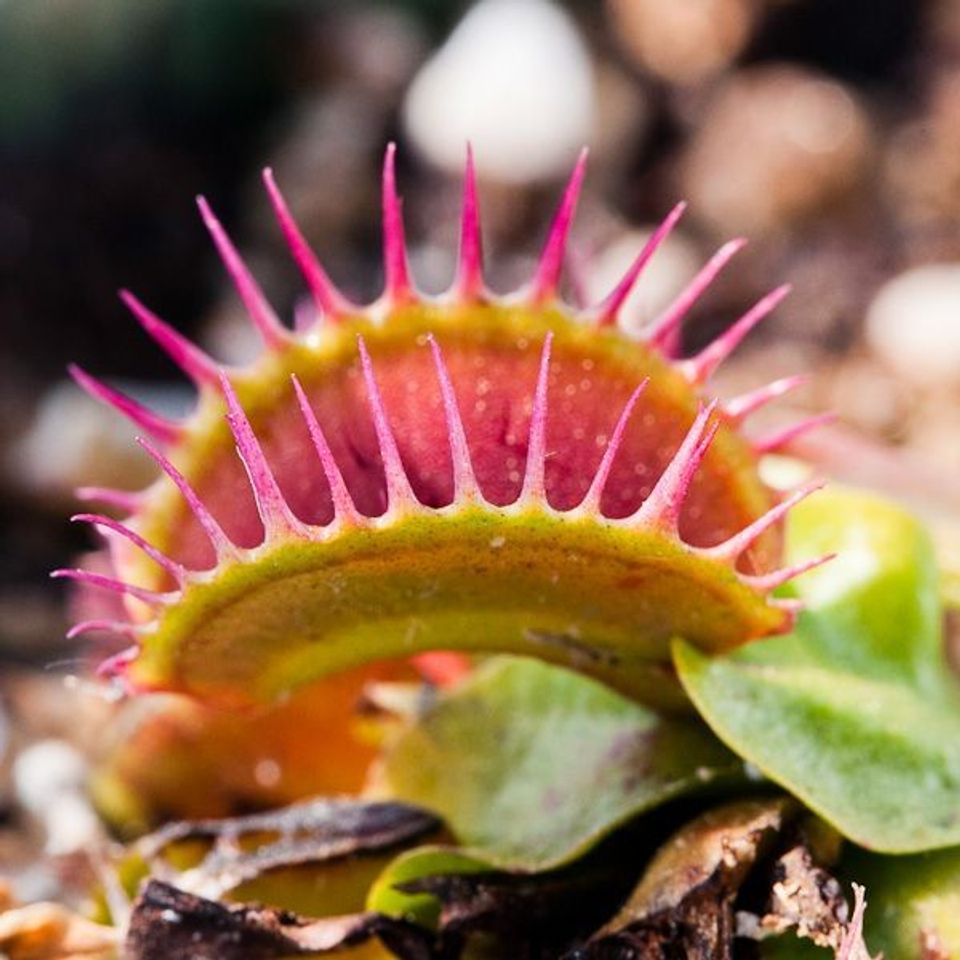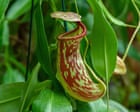Nepenthes khasiana oozes an enticing liquid on the rim of its pitchers that tempts its prey into a deadly trap
Vous n'êtes pas connecté
- English
- Français
- عربي
- Español
- Deutsch
- Português
- русский язык
- Català
- Italiano
- Nederlands, Vlaams
- Norsk
- فارسی
- বাংলা
- اردو
- Azərbaycan dili
- Bahasa Indonesia
- Հայերեն
- Ελληνικά
- Bosanski jezik
- українська мова
- Íslenska
- Türkmen, Түркмен
- Türkçe
- Shqip
- Eesti keel
- magyar
- Қазақ тілі
- Kalaallisut ; kalaallit oqaasii
- Lietuvių kalba
- Latviešu valoda
- македонски јазик
- Монгол
- Bahasa Melayu ; بهاس ملايو
- ဗမာစာ
- Slovenščina
- тоҷикӣ ; toğikī ; تاجیکی
- ไทย
- O'zbek ; Ўзбек ; أۇزبېك
- Tiếng Việt
- ភាសាខ្មែរ
- རྫོང་ཁ
- Soomaaliga ; af Soomaali
 Maroc - POPDIARIES.COM - A La Une - 16/08/2024 16:27
Maroc - POPDIARIES.COM - A La Une - 16/08/2024 16:27
The Perils of Touching a Venus Flytrap: Why It's Best to Leave Them Alone
The Venus Flytrap, known scientifically as Dionaea muscipula,is a fascinating plant renowned for its unique carnivorous mechanism, which captivates both botanical enthusiasts and casual observers alike. However, despite its allure, interacting with this plant can pose certain risks, making it advisable to avoid touching it. The Venus Flytrap's primary defense mechanism is its specialized leaves that function as traps. These traps are lined with hair-like structures called trichomes that, when brushed or triggered, cause the trap to snap shut rapidly. This snapping action, while impressive, is not merely a spectacle; it's a complex evolutionary adaptation designed to capture and digest prey, primarily insects. The danger in touching the Venus Flytrap arises from several factors. Firstly, frequent or unnecessary contact with the plant can stress it, potentially leading to damage or impaired function of its traps. The traps are highly sensitive, and repeated triggering, even by human touch, can deplete the plant’s energy reserves. Each trap is capable of closing only a limited number of times before it becomes ineffective, and overuse can reduce the plant’s ability to catch actual prey. Consequently, the plant may suffer from diminished health, affecting its growth and overall vitality. Moreover, while the Venus Flytrap’s traps are designed to catch insects, they are not equipped to deal with the oils, dirt, and other substances found on human skin. Touching the traps can transfer these contaminants, potentially causing infection or other complications that might hinder the plant's normal function. Additionally, the physical pressure applied during contact can harm the delicate structure of the traps, leading to possible damage or deformation. From an ecological perspective, touching the Venus Flytrap disrupts its natural behavior and environment. These plants are adapted to specific conditions in their native habitats, and any disturbance, including physical handling, can have a negative impact on their well-being. In nature, Venus Flytraps rely on a delicate balance of environmental factors to thrive, and human interference can upset this balance. In summary, while the Venus Flytrap is a remarkable plant with intriguing mechanisms, it is best appreciated from a distance. The perils of touching it include stressing the plant, risking damage to its traps, and potentially introducing contaminants that could affect its health. By leaving the Venus Flytrap undisturbed, we allow it to function optimally and continue to fascinate us with its natural behaviors. READ MORE - Decoding the Secrets of Mummies in the Pyramids: What You Need to Know
Articles similaires
Plantwatch: Pitcher plant’s sweet nectar is laced with toxic nerve agent
Nepenthes khasiana oozes an enticing liquid on the rim of its pitchers that tempts its prey into a deadly trap...
Plantwatch: Pitcher plant’s sweet nectar is laced with toxic nerve agent
Nepenthes khasiana oozes an enticing liquid on the rim of its pitchers that tempts its prey into a deadly trap...
Young country diary: Other kids love birds and insects – I love moss
Living in a city, I don’t have much contact with nature, but when I do, I always savour it. Most people go to the woods in search of flowers, birds,...
Newly Discovered Philippine Pitcher Plant Already In Danger From Climate Change, Poaching
Philippine scientists and an Australian expert have just confirmed a new species of pitcher plant found only on Palawan Island, but warn that it is...
What attracts snakes to emerge from toilet bowls?
Snakes entering toilets are rare, driven by a search for shelter, moisture, or escape from flooding. They follow prey like rodents and insects into...
Do Any Animal Species Actively Hunt Humans As Prey?
We’ve all watched Jaws with baited breath, laughed our way through Cocaine Bear and secretly wondered whether it would be possible to get a few pets...
Do Any Animal Species Actively Hunt Humans As Prey?
We’ve all watched Jaws with baited breath, laughed our way through Cocaine Bear and secretly wondered whether it would be possible to get a few pets...
Belarus building major ammunition plant with Russian and Chinese support – BELPOL
Belarus is implementing a large-scale, classified state project to establish full-cycle production of artillery and rocket ammunition that could...
What is sepsis: Understanding its early symptoms, severe stages, causes, and prevention tips to manage
Sepsis is a life-threatening condition where the immune system attacks the body. It can develop from common infections like pneumonia or urinary tract...
Les derniers communiqués
-
Samsung Innovation Campus Strengthens Future-Tech Skilling in Andhra Pradesh
Samsung India - 19/12/2025
-
Samsung Expands Premium Micro RGB Lineup for 2026 With New Sizes and Advanced Features
Samsung India - 17/12/2025
-
Samsung SWA President & CEO JB Park’s Message on Completing 30 Years in India & the Launch of #PoweringInnovationforIndia
Samsung India - 15/12/2025
-
Samsung Unveils New Innovation Vision as It Celebrates 30 Years in India
Samsung India - 11/12/2025
-
Lupin Unveils Strategic Partnership Program to Expand Reach of its Long-Acting Injectable Platform
Lupin Limited - 09/10/2025
-
BarrierBreak Recognized in 2025 Gartner® Market Guide for Digital Accessibility
BarrierBreak - 12/08/2025
-
Infinite Uptime Unlocks Production Reliability for Heavy Industries with PlantOS™ at Global Steel Dynamics Forum
Infinite Uptime - 18/06/2025
-
Majra – National CSR Fund Honours Top 20 CSR Projects At Inaugural Sustainable Impact Challenge 2025
National CSR Fund - 05/06/2025
-
Coal Imports During FY 2024-25 Drops by 7.9 % Compared to FY 2023-24
Ministry of Coal - 27/05/2025
-
India Records USD 81.04 Billion FDI Inflow in FY 2024–25
Ministry of Commerce and Industry - 27/05/2025




